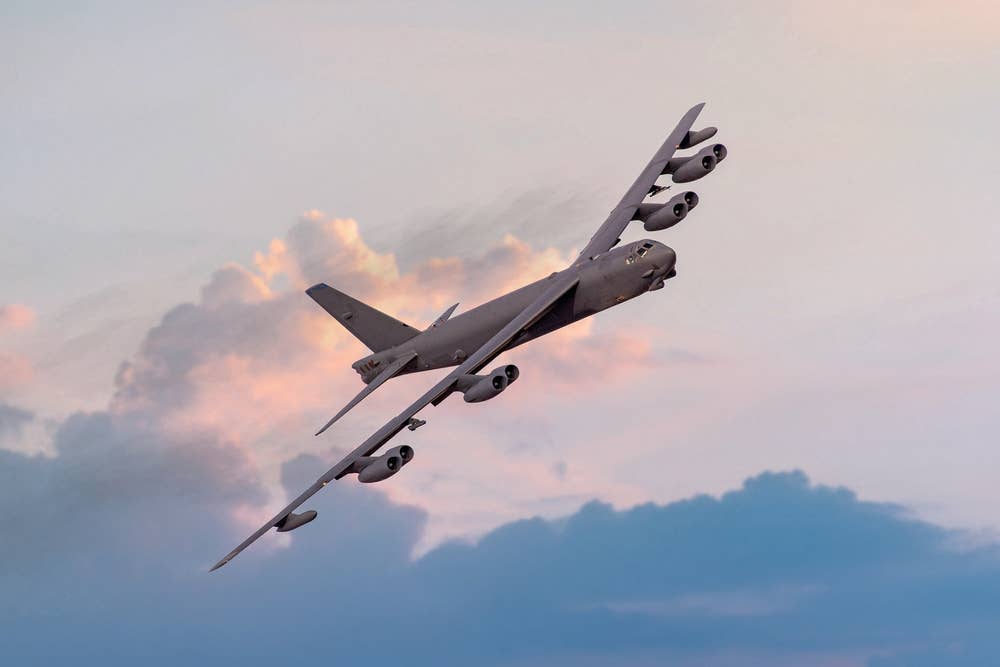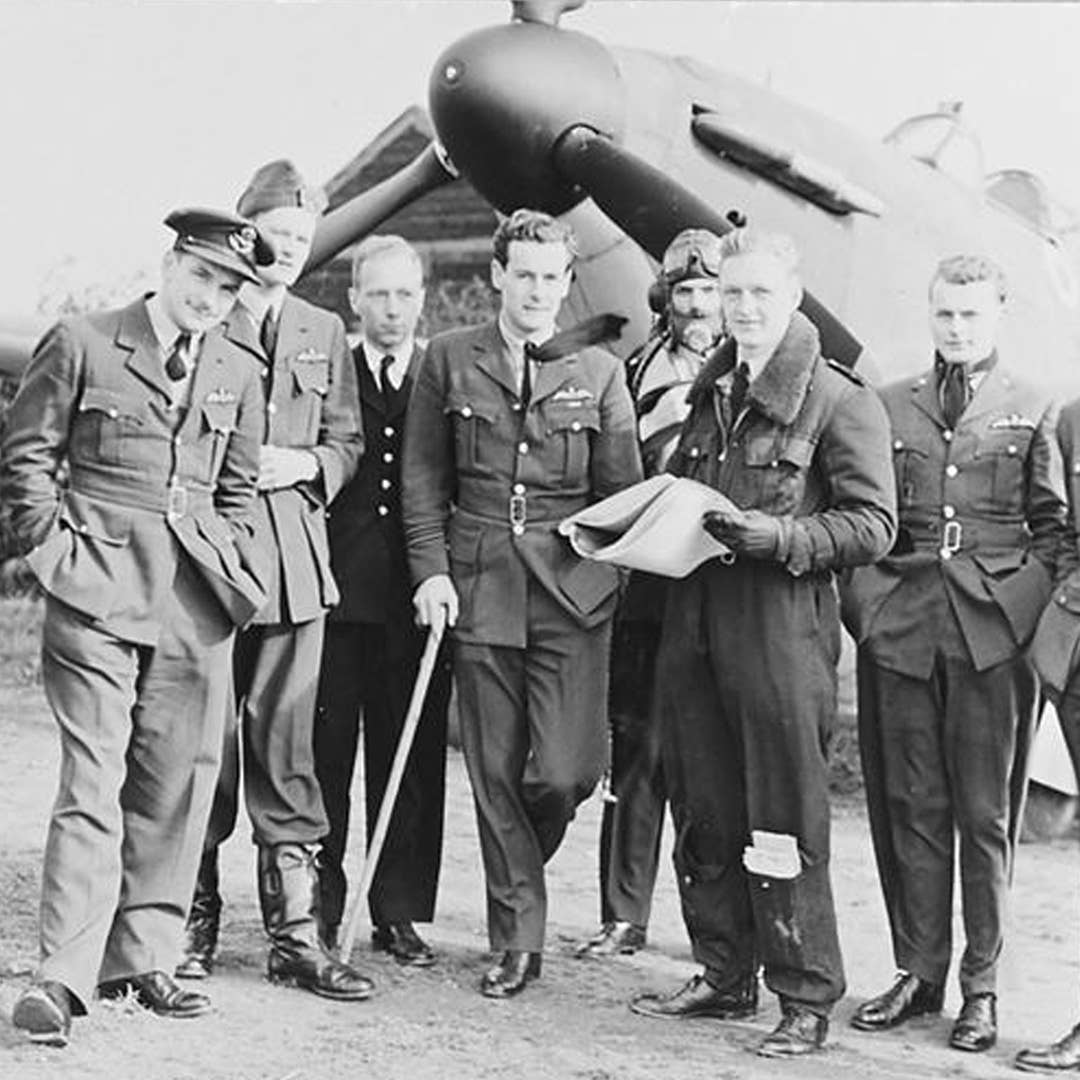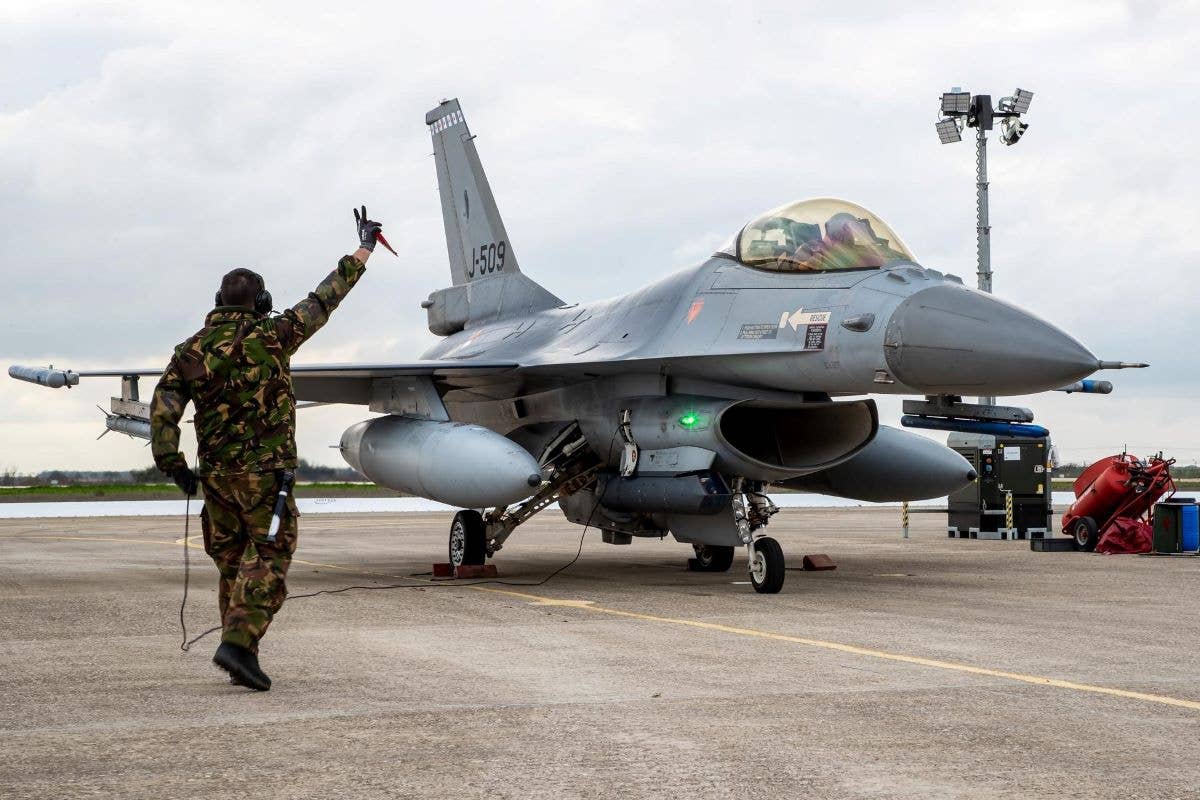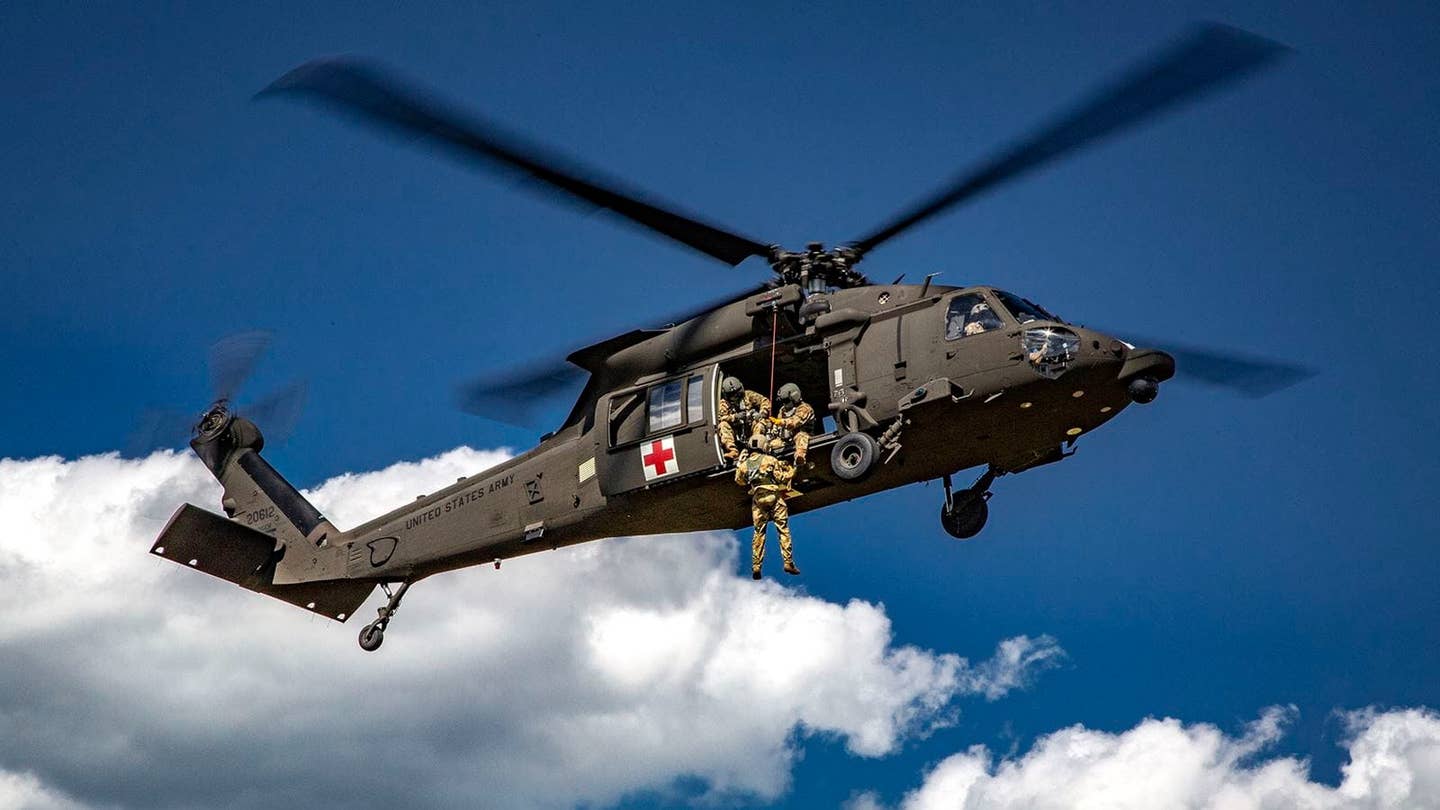Rolls-Royce Begins Testing New Engines for B-52 Bomber Fleet
The upgrade is expected to add another 30 years to the Cold War icon’s career.

Rolls-Royce began testing engines slated for installation in the U.S. Air Force’s fleet of B-52 bombers. [Credit: Shutterstock]
The venerable Boeing B-52 bomber is receiving a new lease on life that could keep it in the air beyond its 100th birthday.
Rolls-Royce said it began outdoor testing of its F130 engine at the NASA Stennis Space Center in Hancock County, Mississippi. The U.S. Air Force chose the F130 to replace the existing powerplants across the B-52 fleet. The company said it expects to deliver more than 600 engines under the replacement program.
The latest test marks the first time the engines will be tested in the dual-pod arrangement used on the B-52. Testing will focus on a number of factors including crosswind aerodynamic flow and operation of engines’ digital controls. Rolls-Royce said. The engine maker said it is working “very closely” with the Air Force and Boeing, which is managing the B-52 modernization program.
The new engines, known for their durability, are expected to extend the aircraft’s career for 30 years—essentially for the remainder of its service life, Rolls-Royce said.
“We are excited to begin this milestone testing program, the first step for what will be decades of successful engine operation for the United States Air Force B-52 fleet,’’ said Candice Bineyard, Rolls-Royce’s director of defense programs. ‘‘Rolls-Royce continues to work very closely with the Air Force and Boeing to ensure the engine testing and integration process run smoothly. This will result in higher fuel efficiency, reduced air refueling requirements, and significantly lower maintenance costs for the B-52 fleet.’’
The F130, which the Air Force selected in September 2021 following a competitive process, is derived from the Rolls-Royce BR family of commercial engines. BR engines are used on numerous business jets including Gulfstream and Bombardier models. The company said the engines will be built and tested at its facilities in Indianapolis, the company’s largest production plant in the U.S.

Sign-up for newsletters & special offers!
Get the latest FLYING stories & special offers delivered directly to your inbox






